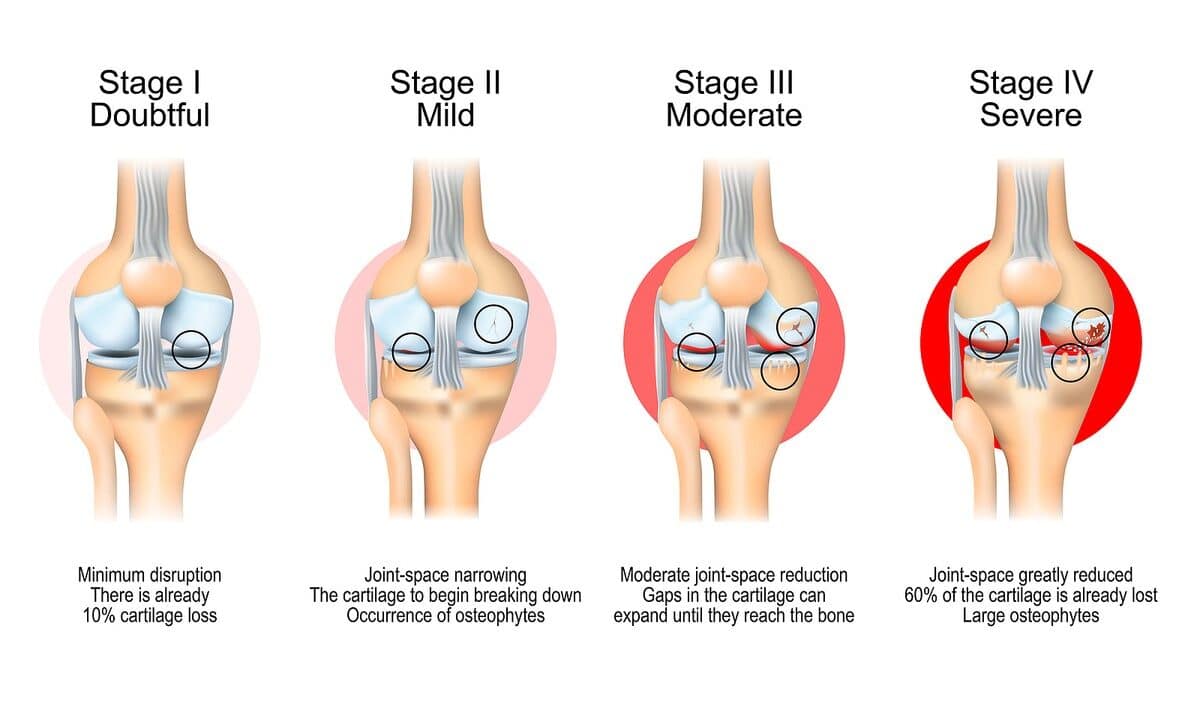
Arthritis is the term used for any joint pain and/or inflammation. There are more than 100 types of arthritis and conditions related to arthritis that can affect anyone, of any age, race or sex.
Arthritis means the swelling, inflammation, and pain of one or more joints. The symptoms usually include joint pain and stiffness. It’s more common in women and the elderly, but children can also have arthritis.
Arthritis can be diagnosed with a physical exam that involves identifying the location of the pain, and determining the range of motion. This can be done at a chiropractor or your primary care doctor’s office. X-rays and/or an MRI can be used to see changes in your arthritis and see how severe your case may be. It can also help determine what kind of arthritis you have.
Arthritis has four main stages: degenerative, inflammatory, infections, and metabolic.

Metabolic Arthritis is caused by gout (also an inflammatory type of arthritis as mentioned above). The uric acid crystals that build up in the joints begin destroying the joints and soft tissues in the body.
With specific management plans, your pain can be managed. Keep in mind: some arthritis types require regularly working with a professional to help control your symptoms.
For Degenerative / Osteoarthritis: Use heat to reduce pain and inflammation, and use topical creams such as Aspercreme along with OTC medications like Advil, Aleve, and Tylenol. Acupuncture can also be helpful for degenerative arthritis. You may also want to take supplements of Glucosamine Chondroitin; it does have mixed results and may not work for you (but it’s probably worth a try). Additionally, stay active with low-impact exercise (swimming, yoga and Pilates, for example) and consider your orthopedic options including cortisone injections, hyaluronic acid injections, arthroscopic debridement and joint replacement.
For Inflammatory arthritis: Find a rheumatologist. This is a difficult type of arthritis to manage alone. Treatment is similar to osteoarthritis treatment using heat, OTC pain medication, getting acupuncture, and possibly taking glucosamine chondroitin.. Getting enough exercise and considering your orthopedic options can be good, too (see the laundry list above in the osteoarthritis management). Using DMARDs (disease-modifying antirheumatic drugs) and biologics can also be helpful. These work by changing how your body perceives and addresses the “threat”.
For Infectious arthritis: You’ll need to treat the source of the infection with antibiotics and joint drainage. If the infection has been left alone for too long or has aggressively destroyed too much of the joint, you may need to undergo joint reconstruction surgery, which can be minimal or extreme. If your spine has been attacked, you may require vertebroplasty to restore or rebuild your vertebra[e].
For Metabolic arthritis: It’s important to control the uric acid levels with diet and lifestyle changes. Using medication, such as Allopurinol, is also helpful. If the joint is past the point of recovery, then surgery to remove tophi (large bumps of uric acid crystals) may be required. Joint fusion or joint replacement may also be required.
Some arthritis is caused by lifestyle choices, but still others aren’t able to be prevented. Do what you can. More specifically:
Metabolic: Gout can be much improved by diet and limiting or avoid alcohol. Avoid high purine foods such as organ meats (liver, kidney or sweetbreads) shellfish (scallops, shrimp, crab) and seafood (such as tuna, anchovies or sardines). Limit your red meat intake (beef, lamb and pork). Keep up with your exercise to maintain a healthy weight.
All told, arthritis is a painful condition that can make your regular daily activities difficult. If you’re able to prevent it, do. If you’re not, follow a careful diet, and pay attention to your body with the help of a healthcare provider. With some steps, you may be able to slow down the effects of degenerative arthritis. While you battle this joint disease, seek out a chiropractor for additional pain relief, improvement in your range of motion, and to decrease your inflammation. Set up an appointment with Element Chiropractic so you can get back in your Element—even with arthritis.